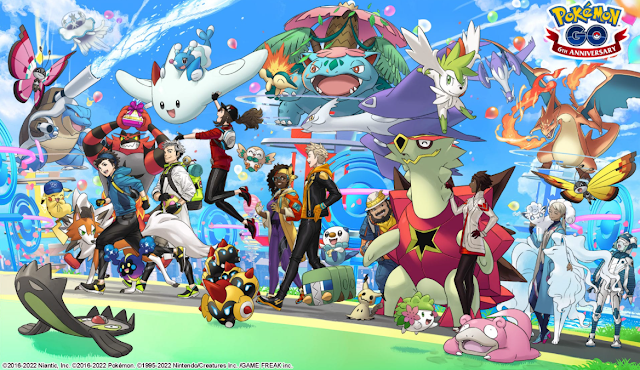When a game becomes part of your life, even the slightest change can cause anxiety. Pokémon Go is one such game. Since its launch in the summer of 2016, this location-based Pokémon adventure has quietly accompanied players for nearly a decade. It didn’t just change people’s perception of mobile gaming — it became embedded in the daily lives of tens of millions around the world: whether it’s a quick Gym Battle during your commute, a weekend Community Day with friends, or encountering a rare Pokémon while traveling in an unfamiliar city.
So when developer Niantic announced it had been acquired by gaming company Scopely for $3.5 billion, the community immediately exploded. Although the deal was completed last month, it was only recently that Niantic officially addressed both its employees and players during an all-hands meeting held in Japan — with the most crucial line being: “Rest assured, Pokémon Go will not undergo any major changes.”
The meeting gathered core representatives from both Niantic and Scopely, with the main goal of calming concerns. Niantic’s spokesperson explained that Scopely invested heavily because of Pokémon Go’s success, not to rebuild it from scratch. They promised that the game’s core design, philosophy, and operational direction would continue unchanged — and that there were no plans to “sunset” the title.
For many players, such reassurance was a relief. Since the acquisition news broke, discussions on Reddit and Discord have been dominated by worries: Will the game become another fast-paced pay-to-win title? Will it lose its unique emphasis on exploration and outdoor play? Will it turn into a commercialized cash grab?
Olivia, a player from Los Angeles, shared that she has been playing Pokémon Go since 2017, spinning PokéStops on her way to work every day. “This game gives me a reason to go outside daily — not just for exercise, but also to greet familiar players I meet along the way,” she said. “If that sense of connection disappears, the game would lose its soul for me.”
For many, Pokémon Go is no longer just a game — it’s a lifestyle. Mark, a middle school teacher in London, says he often takes walks to nearby parks to catch Pokémon during breaks and joins weekend events with his wife. “We’re not hardcore players,” he explained, “but the game gives us something to share and encourages us to spend more time together outdoors.”
That’s exactly why this acquisition drew so much attention. Pokémon Go’s player base is incredibly broad, spanning ages, regions, and play styles. Unlike other popular mobile games that chase fast-paced progression or competitive battles, it focuses on exploration, community, and real-world engagement. This design may not yield the same quick profits as heavily monetized titles, but it has cultivated a loyal and enduring community.
Niantic stated that there are no major updates planned for now, but the game will continue to “evolve.” Though they didn’t reveal details, past development trends suggest Niantic will keep experimenting with new features — deeper AR experiences, real-world event integrations, and more region-specific content updates.
Some players welcome this direction. Daniel, a data analyst from Berlin, said: “I hope they introduce more city-themed events so players can really feel the joy of exploring the world, not just grinding numbers.” He recalled joining a Pokémon Go event in Rome last summer that was tied to historical landmarks — “the immersive experience of finding Pokémon in real locations is something I’ll never forget.”
For Scopely, acquiring Niantic is not just an investment — it’s also a branding challenge. While Scopely has been commercially successful, its reputation among core gamers is mixed. Many consider Monopoly Go a symbol of “aggressive monetization.” So when the company suddenly acquired a developer famous for its unconventional, non-monetized design philosophy, it was bound to raise eyebrows.
However, Niantic’s public statement suggests both parties have reached a balance in roles: Niantic will remain responsible for game development and operations, while Scopely provides financial and marketing support. If this collaboration goes smoothly, we might see Pokémon Go reach new heights — more stable servers, faster bug fixes, and even synchronized global events.
With the game’s 10th anniversary less than a year away, this acquisition represents both a risk and an opportunity. For a title entering its second decade, players don’t just want to know how it will change — they want to know whether it will stay true to its original spirit of “going out to explore the world.”
The real answer won’t be found in press releases, but in every future update, every live event, and every moment when a player steps outside, opens their phone, and begins another Pokémon adventure.









Leave a Reply